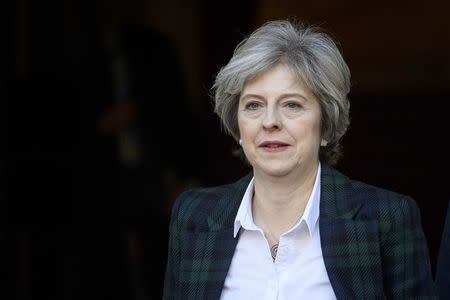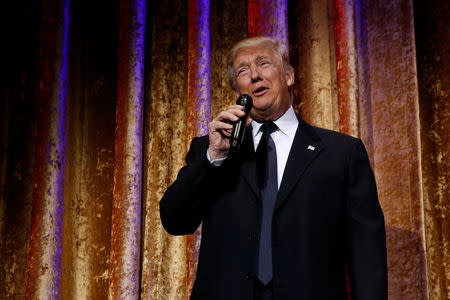EU's Tusk hails 'Churchill' May, slams Trump for backing Brexit
STRASBOURG (Reuters) - The EU leader who will oversee Britain's Brexit negotiations with the bloc hailed Theresa May on Wednesday for echoing Winston Churchill in backing European integration. May's comments in laying out her plans for quitting the European Union were, European Council President Donald Tusk told EU lawmakers, a contrast to those of U.S. President-elect Donald Trump, who has suggested more countries may follow Britain out. "We took note of Prime Minister May's warm, balanced words on European integration which were much closer to the narrative of Winston Churchill than of the American President-elect Trump," the former Polish leader told the chamber. May said on Tuesday that in leaving the EU Britain wanted the bloc to remain strong and prosperous. Fellow Conservative premier Churchill, Britain's World War Two leader, called in 1946 for Germany and France to forge a "United States of Europe", though one which then-imperial Britain would not join. Trump, who takes office on Friday, has angered and alarmed EU leaders by supporting Brexit and suggesting other countries may follow suit -- a sharp contrast with decades of U.S. support for European integration. Tusk, who chairs summits of EU leaders, echoed others on the continent in welcoming May's speech in which she said Britain would leave the bloc's single market in order to be able to control immigration and stop funding the EU budget and obeying EU courts. Suggestions by some British politicians since the June referendum on Brexit that London could stay in the single market while ending free movement of EU workers had been insistently opposed by other governments, which saw that as trying to keep the benefits of membership without paying the costs. "The unified position of the 27 member states on the indivisibility of the single market was finally understood and accepted by London," Tusk said, while warning Britain not to try "pick-and-choose tactics" in its forthcoming negotiations. (Reporting by Alastair Macdonald in Brussels; Editing by Mark Trevelyan)

 Yahoo News
Yahoo News 

